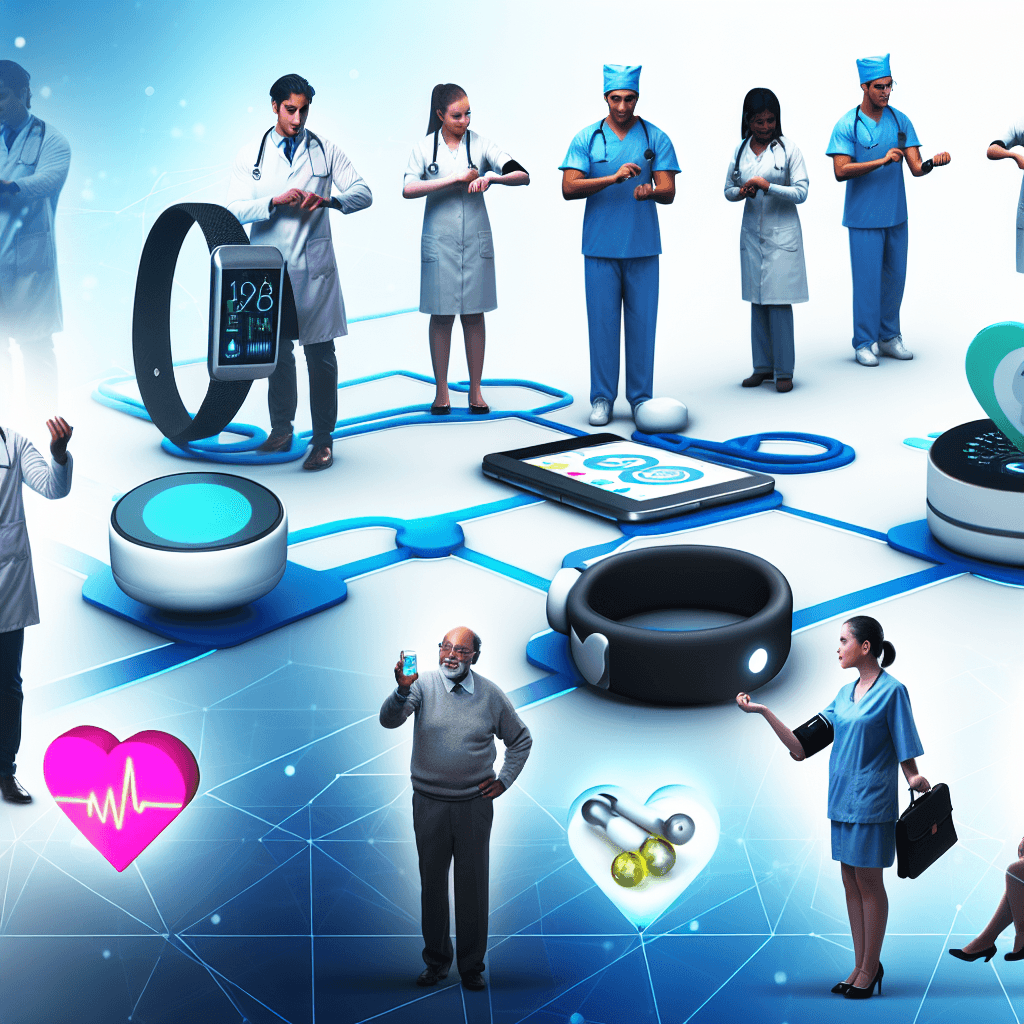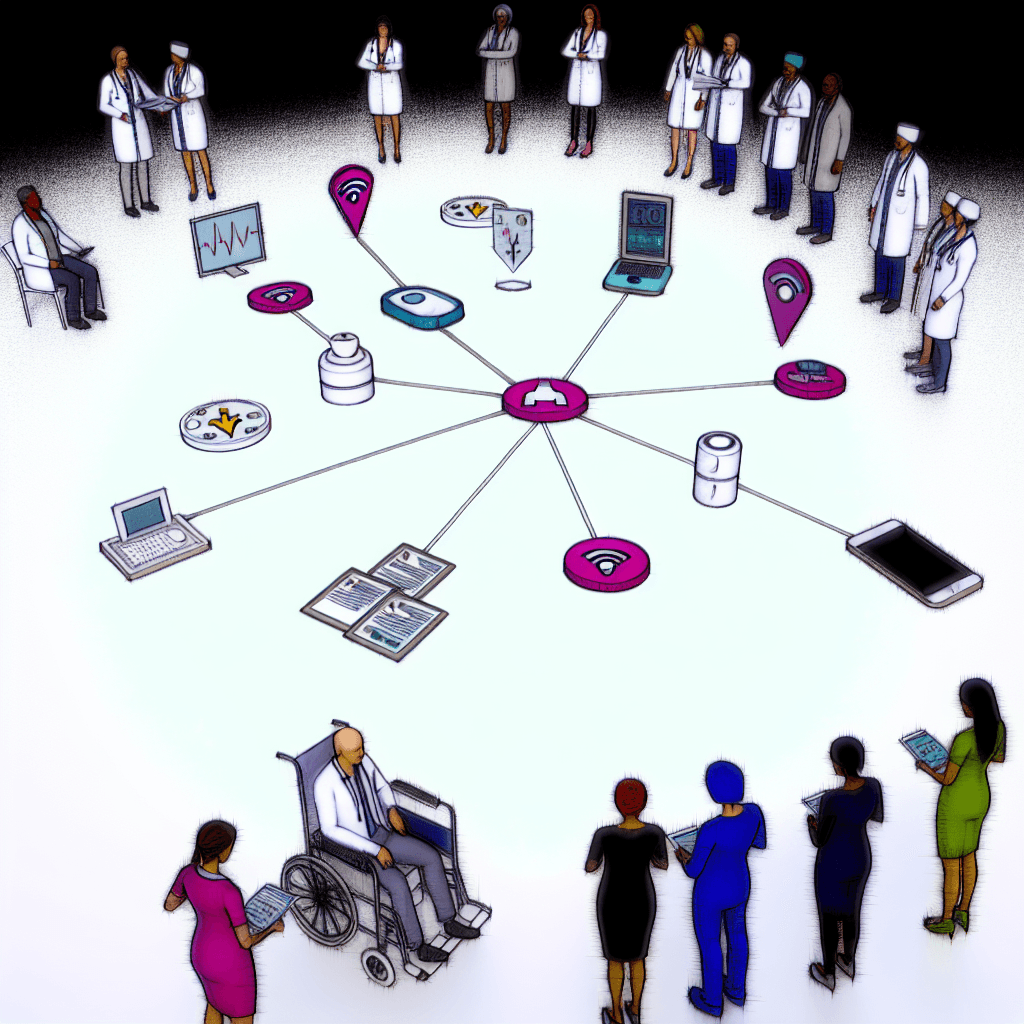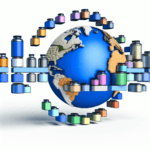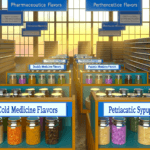Explore the expanding IoT sensors market in healthcare, enhancing patient care and operational efficiency.
IoT Sensors in Healthcare Market

Table of Contents
- Exploring the Impact of IoT Sensors in the Healthcare Market
- The Role of IoT Sensors in Healthcare
- Benefits of IoT Sensors in Healthcare
- Challenges and Considerations
- Case Studies: IoT Sensors in Action
- Remote Monitoring for Cardiac Patients
- Wearable Devices for Diabetes Management
- Future Prospects of IoT Sensors in Healthcare
- Conclusion
Exploring the Impact of IoT Sensors in the Healthcare Market

The integration of Internet of Things (IoT) sensors in healthcare is revolutionizing the way care is delivered, monitored, and managed. This technology is not only enhancing patient outcomes but also optimizing healthcare operations and reducing costs significantly. In this article, we delve into the various aspects of IoT sensors in the healthcare market, examining their applications, benefits, challenges, and future prospects.
The Role of IoT Sensors in Healthcare
IoT sensors are small, interconnected devices that collect and transmit data through the Internet. In healthcare, these sensors play a crucial role in continuous monitoring, data collection, and real-time feedback. Here are some key applications:
- Remote Patient Monitoring: IoT sensors enable healthcare providers to monitor patients remotely, reducing the need for frequent hospital visits and allowing for continuous care.
- Chronic Disease Management: Patients with chronic conditions such as diabetes or heart disease can use IoT sensors to monitor their health parameters, helping in timely intervention and better disease management.
- Elderly Care: Sensors can monitor the activities and health of the elderly, providing alerts in case of falls or other emergencies.
- Medication Management: IoT-enabled pill dispensers remind patients to take their medication and track adherence.
Benefits of IoT Sensors in Healthcare
The deployment of IoT sensors in healthcare settings brings numerous benefits:
- Improved Patient Outcomes: Continuous monitoring leads to early detection of potential health issues, allowing for prompt intervention.
- Cost Reduction: By reducing the need for in-person visits and enabling better disease management, IoT sensors can significantly lower healthcare costs.
- Increased Accessibility: Remote monitoring capabilities make healthcare more accessible, especially for patients living in rural or underserved areas.
- Enhanced Patient Engagement: With real-time data at their fingertips, patients can be more engaged in their own health management.
Challenges and Considerations
Despite the benefits, the adoption of IoT sensors in healthcare faces several challenges:
- Data Security and Privacy: The transmission and storage of medical data require stringent security measures to protect against breaches and ensure patient privacy.
- Integration with Existing Systems: Integrating IoT solutions with existing healthcare IT systems can be complex and costly.
- Regulatory Compliance: IoT devices must comply with healthcare regulations, which can vary widely by region and can be a barrier to deployment.
- Reliability and Accuracy: Ensuring the reliability and accuracy of data collected by IoT sensors is critical for making informed healthcare decisions.
Case Studies: IoT Sensors in Action
Several successful implementations of IoT sensors in healthcare provide insights into their potential impact:
Remote Monitoring for Cardiac Patients
A leading hospital in the United States implemented IoT sensors for remote monitoring of cardiac patients. These sensors track heart rate, blood pressure, and other vital signs, transmitting the data in real-time to healthcare providers. This initiative has led to a 50% reduction in readmission rates for heart failure patients.
Wearable Devices for Diabetes Management
A tech company developed a wearable glucose monitor that continuously tracks blood sugar levels and sends alerts to both patients and doctors when levels are out of the normal range. This device has improved the quality of life for many diabetics and has significantly reduced emergency room visits related to diabetes.
Future Prospects of IoT Sensors in Healthcare
The future of IoT sensors in healthcare looks promising with several trends likely to drive further adoption:
- Advancements in Sensor Technology: Ongoing improvements in sensor technology will enhance the accuracy, reliability, and range of health monitoring capabilities.
- AI and Machine Learning: The integration of AI and machine learning with IoT devices can lead to smarter health monitoring systems that predict health events before they occur.
- Expansion of Telemedicine: As telemedicine continues to grow, so will the use of IoT sensors in providing comprehensive remote care.
- Increased Focus on Patient-Centric Care: IoT sensors help shift the focus from episodic care to continuous, personalized care, aligning with broader healthcare trends.
Conclusion
The integration of IoT sensors in the healthcare market is transforming the landscape of medical care delivery. With their ability to provide real-time, accurate health data, IoT sensors enhance patient outcomes, reduce healthcare costs, and make healthcare more accessible. While challenges such as data security and system integration exist, the ongoing advancements in technology and increasing focus on patient-centric care suggest a bright future for IoT in healthcare. As the industry continues to evolve, IoT sensors will play an increasingly important role in shaping the future of healthcare.
In conclusion, embracing IoT technology in healthcare not only benefits patients but also healthcare providers and the system as a whole, promising a new era of efficient, proactive, and patient-centered care.








